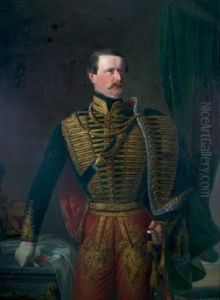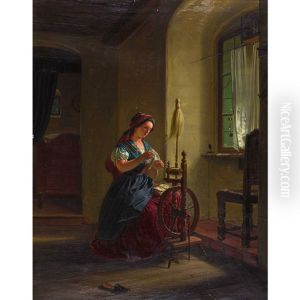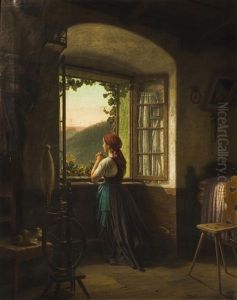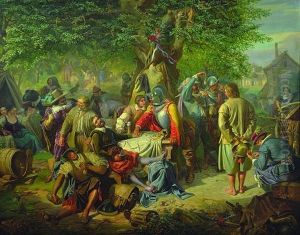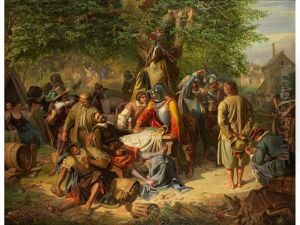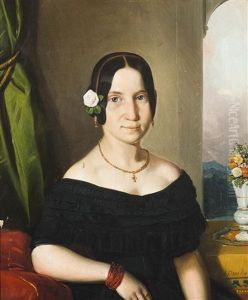Anton Dvorak Paintings
Antonín Dvořák was a renowned Czech composer, one of the major figures of nationalistic music during the late 19th century. Born on September 8, 1841, in Nelahozeves, Bohemia, which was then part of the Austrian Empire and now is part of the Czech Republic, Dvořák demonstrated his musical talents early in life. He was the firstborn son of František Dvořák, a butcher and innkeeper, and his wife, Anna, who was a talented singer. The family's love for music was evident, and Antonín learned to play violin from his schoolteacher.
Dvořák's musical education continued as he attended the only available school that focused on music in the nearby town of Zlonice. There, he studied violin, piano, organ, and also began composing with guidance from his teacher, Antonín Liehmann. Subsequently, he attended the Prague Organ School from 1857 to 1859, which further honed his skills. After graduating, Dvořák earned a living as a violist in various orchestras while continuing to compose music.
By the 1870s, Dvořák's compositions started to gain attention. In 1873, he married his pupil Anna Čermáková, and later that year, he left his orchestra to focus on composing. His work caught the eye of Johannes Brahms, who was impressed with Dvořák's Moravian Duets. Brahms recommended him to his own publisher, Simrock, who commissioned Dvořák to write the Slavonic Dances, Op. 46. These compositions were a success and brought Dvořák international recognition.
Dvořák's style was deeply influenced by Czech, Moravian, and other Slavic folk music, which he incorporated into a classical structure in innovative ways. His music is marked by melodic inventiveness, rich harmonies, and vibrant rhythms. Some of his most famous works include the Symphony No. 9 'From the New World', the 'American' String Quartet, the opera 'Rusalka', and the Cello Concerto in B minor.
Dvořák's fame led him to take the position of the director of the National Conservatory of Music in New York City from 1892 to 1895. During his time in the United States, he was inspired by American music, including Native American melodies and African-American spirituals. This influence is evident in the 'New World' Symphony, which he composed while in the U.S. Upon returning to Bohemia, he became the director of the Prague Conservatory and continued to compose until his death on May 1, 1904.
Dvořák's legacy is that of one of the foremost composers of the Romantic era, and his works remain widely performed today. His music also played a significant role in the development of the sense of national identity in Czech music and has influenced many composers who followed him.
